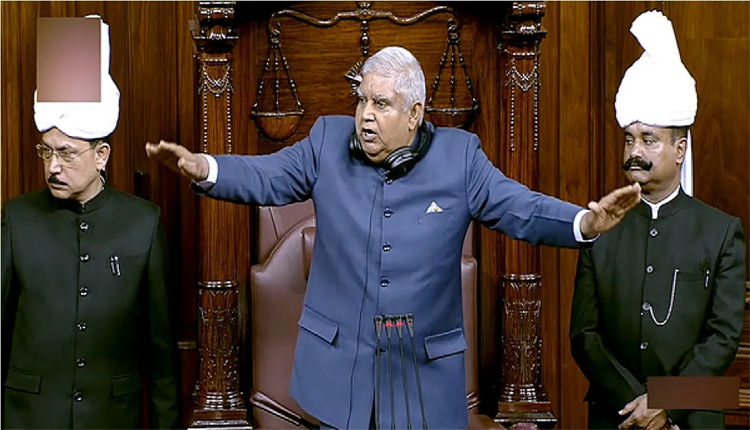New Delhi: The sudden resignation of Jagdeep Dhankhar as Vice President on July 21, the opening day of Parliament’s Monsoon Session, has become the subject of intense speculation, with opposition leaders claiming that factors beyond health may have influenced his decision.
Dhankhar, who was slated to serve till 10 August 2027, cut short his tenure by nearly two years. While submitting his resignation, he pointed to ongoing health challenges – recently highlighted by his hospitalisation in Nainital. However, leaders from the opposition, including Congress MP Shashi Tharoor, have suggested that Dhankhar may have been nudged out. “It is quite clear that the next Vice-President will be nominated by the ruling party, given the current electoral structure. We hope that the Centre consults the opposition, but ultimately, who knows?” Tharoor remarked.
The Vice-President of India is chosen by an electoral college that includes 542 elected Lok Sabha members and 240 elected and nominated Rajya Sabha members, totalling 782 voters. A candidate requires at least 391 votes to secure victory. The process for electing the next Vice-President is set to commence on August 7, with nominations closing on August 21 and results to be announced on September 9.
With the National Democratic Alliance (NDA) commanding a comfortable majority— 293 MPs in Lok Sabha and 129 in Rajya Sabha, amounting to a total of 422 votes— the outcome appears a foregone conclusion if the coalition remains united. This arithmetic lends weight to Tharoor’s observation that the election may be little more than a formality this year.
Dhankhar’s tenure as Vice-President was marked by his outspoken and active approach. As Chairman of the Rajya Sabha, he presided over several crucial bills and strove to bring clarity and discipline to proceedings. His time in office was not without controversy, with differences reportedly surfacing over the government’s stance on the impeachment of Justice Yashwant Varma, as well as pointed exchanges with opposition leaders and possible disagreements with the Centre and the Rashtrapati Bhavan.
While health concerns have been cited as the official reason for his resignation, Dhankhar’s exit has set the stage for a pivotal election— one in which the NDA appears set to reinforce its hold on high constitutional offices. As the nation awaits the announcement of candidates, the focus now shifts to the process and politics that will shape the naming of India’s next Vice-President.



Comments are closed.